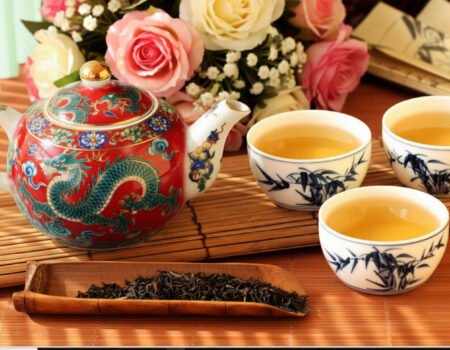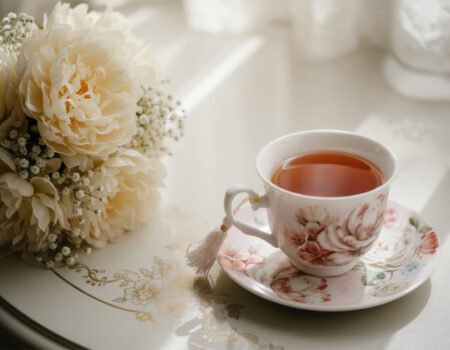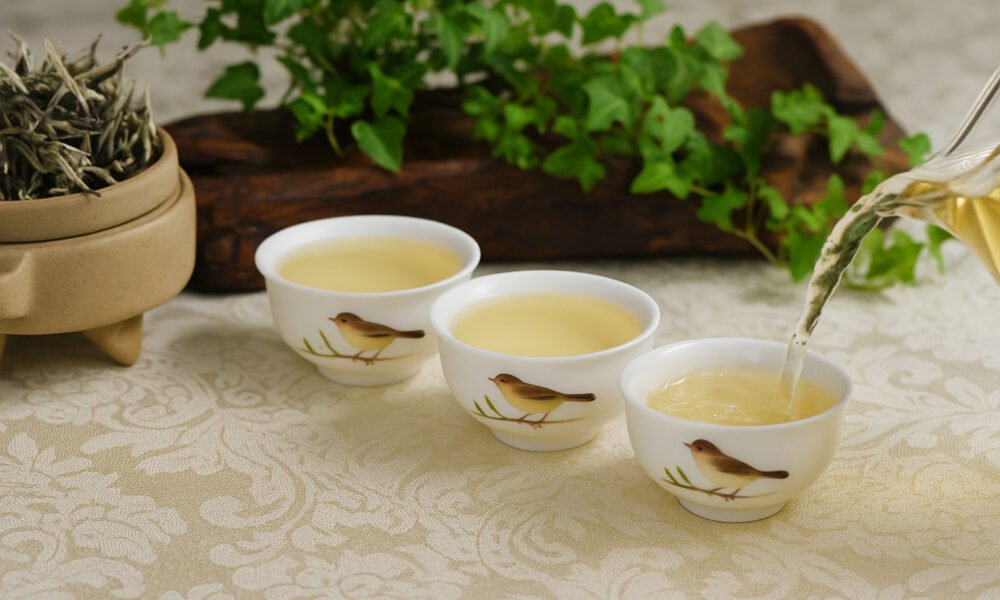
Exploring the Symbolism of White Tea
Index
Tea leaves tell stories beyond their taste. Many tea drinkers miss the rich types of tea symbolism hidden in their daily cup. White tea leaves, with their silver-white hairs and minimal processing, carry special meanings across cultures.
These delicate leaves speak of purity, new beginnings, and subtle wisdom that most casual tea fans might never notice.
White tea stands as one of the rarest and most prized tea varieties in the world. It comes from the same Camellia sinensis plant as other teas but uses only the youngest buds and leaves.
In this guide, we’ll explore what white tea leaves have meant throughout history, their spiritual significance, and how different cultures view them. The meanings might surprise you.
Key Takeaways
- White tea leaves symbolize purity, new beginnings, and wisdom across many cultures.
- Chinese emperors during the Song Dynasty (960-1279) prized white tea as a tribute gift.
- The minimal processing of white tea preserves young buds and leaves from the Camellia sinensis plant.
- Tea enthusiasts use white tea for meditation due to its connection with mental clarity.
- Serving white tea to guests shows true hospitality in Chinese homes and formal settings.
The Symbolism of White Tea Leaves

White tea leaves carry deep symbolic meaning across many cultures. In Chinese tea traditions, these delicate leaves represent purity, elegance, and natural beauty. The tea’s minimal processing preserves the young buds and leaves of the Camellia sinensis plant, making it a perfect symbol of simplicity and authenticity.
Many tea masters prize white tea for its subtle flavor profile and the careful harvesting it requires.
Serving white tea to guests shows true hospitality in Chinese homes and formal settings. The pale, silvery appearance of varieties like Baihao Yinzhen (Silver Needle) tea reflects its status as a refined beverage.
This connection to purity extends beyond taste to spiritual practices, where white tea often appears in ceremonies that honor clarity of mind. The unopened buds used in premium white teas further strengthen this symbolism of potential and new beginnings.
Cultural and Historical Significance of White Tea
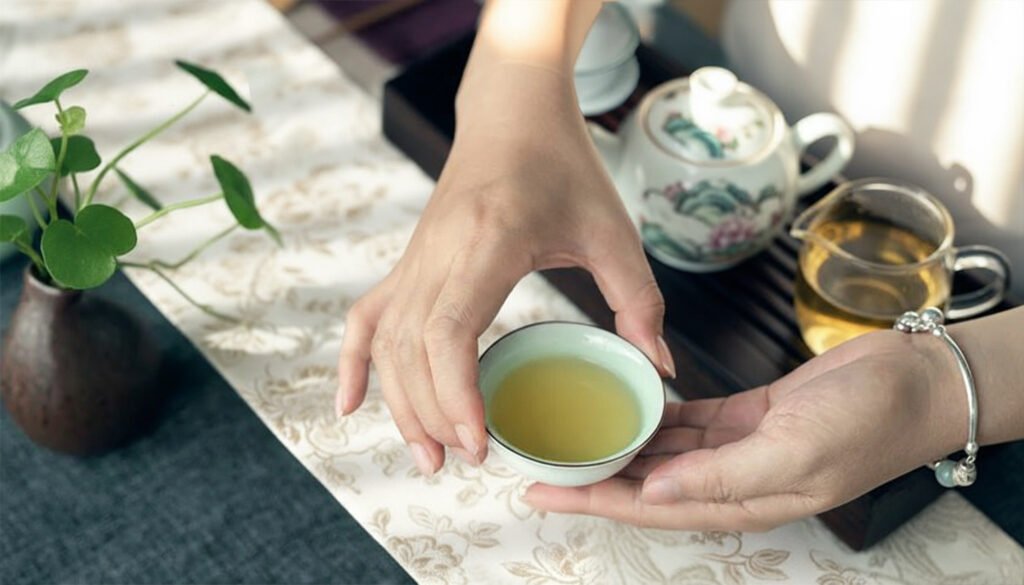
White tea holds a royal place in Chinese history, dating back to the Song Dynasty (960-1279) in Fujian’s northern region. Chinese emperors prized this rare beverage for its subtle flavor and minimal processing.
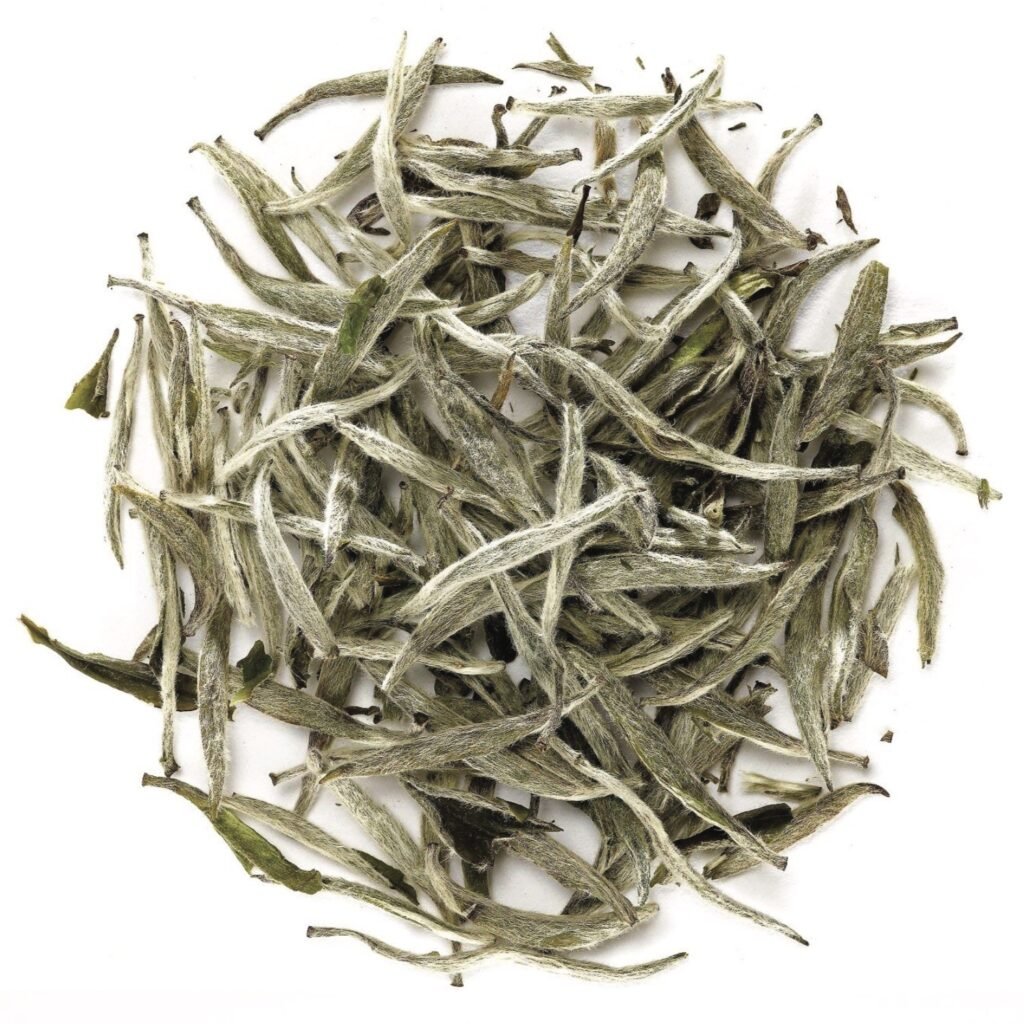
The imperial court valued white tea so highly that locals would offer it as tribute to show respect and loyalty. This practice helped establish white tea as a symbol of status and refinement throughout ancient China.
Tea ceremonies featuring white tea spread beyond palace walls to become important social rituals. Families served this delicate brew to guests as a sign of hospitality and friendship.
The simple yet mindful preparation process—heating water to specific temperatures and steeping leaves for exact times—became a meditation practice itself. Each step engaged all five senses, from the visual beauty of the pale leaves to the gentle aroma that filled the room.
Global appreciation for white tea grew as trade routes expanded between East and West. Today, tea connoisseurs worldwide recognize its cultural significance and health benefits. The tea’s journey from imperial courts to international markets shows how deeply it connects to Chinese heritage and values of simplicity and mindfulness.
Next, we’ll explore the spiritual dimensions and personal meanings people find in white tea consumption.
Spiritual and Personal Meanings of White Tea

Beyond its cultural roots, white tea carries deep personal significance for many tea enthusiasts. This delicate brew symbolizes mental clarity and purity of thought, making it a popular choice for meditation practices.
Many people turn to white tea during times of stress or when seeking a moment of simplicity in their busy lives. The minimal processing of silver needle teas preserves their natural essence, which tea lovers often connect to authenticity and truth in their personal journeys.
Tea leaf reading, or tasseography, gives special meaning to white tea leaves. Their light color represents new beginnings and fresh starts in life. The high antioxidant content supports physical health and connects to the idea of purifying one’s thoughts and emotions.
Many tea drinkers report feeling a sense of joy and mental focus after enjoying a cup of white tea, aligning with its traditional symbolism of clarity and insight. This makes white tea a perfect companion for personal reflection and spiritual practices.
Tiesta Tea Silver Needle White Tea
Premium Fujian Silver Needle with visible trichomes and never-bitter smoothness—designed for quiet, focused sessions.
Silver Needle—the most prized white tea—undergoes minimal processing that preserves its silvery, fur-covered buds and the natural purity associated with clarity and new beginnings. This single-origin Fujian Silver Needle earned praise from 8 reviewers for its impossibly smooth, never-bitter character, with visible trichomes that signal freshness and careful handling. The low caffeine balanced with calming L-theanine makes it particularly suited for quiet reflection.
⚠️ Skip this if you prefer robust, full-bodied tea or drink primarily for an energy boost—Silver Needle's gift is refinement, not intensity. Also not ideal for daily drinking on a budget; this is ceremonial-grade tea meant for focused moments.
Conclusion
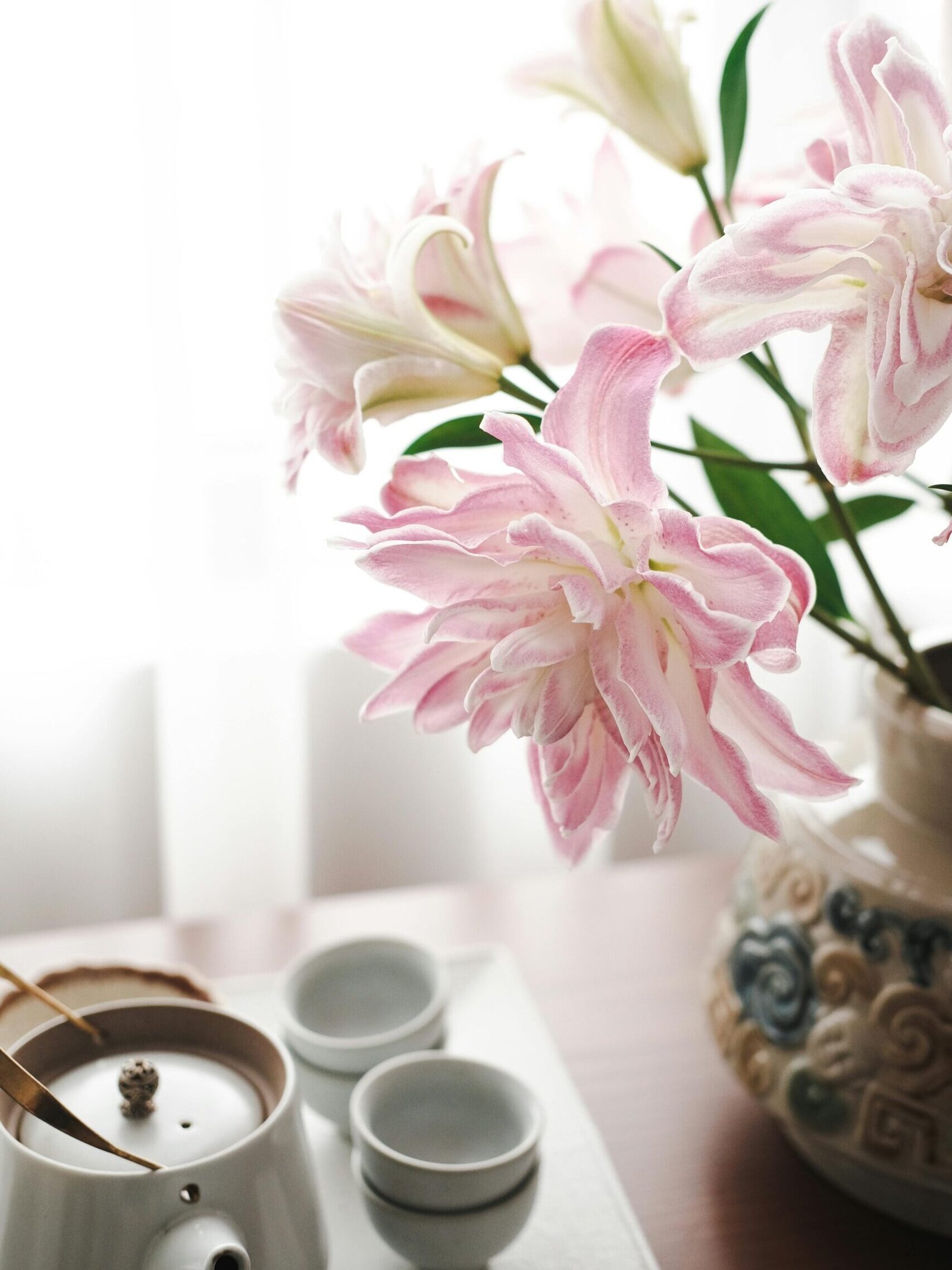
White tea leaves carry deep meaning across many cultures, from ancient China to modern wellness circles. These delicate leaves stand for purity, peace, and new beginnings in Eastern traditions.
Tea lovers value white tea not just for its subtle taste but also as a symbol of mindfulness and taking time for yourself. Next time you brew a cup of white tea, think about the centuries of meaning steeped in those pale leaves.
The simple act of drinking white tea connects you to a rich history of symbolism that spans continents and generations.
FAQs
1. What does white tea symbolize in different cultures?
White tea symbolizes purity and simplicity in many Asian cultures. In Chinese tea culture, it represents the natural state of tea leaves with minimal processing, making it a symbol of authenticity. The Baimudan tea (White Peony) specifically stands for elegance and the natural beauty found in simplicity.
2. How is white tea different from other types like green tea or black tea?
White tea undergoes the least processing of all tea types, with no fermentation compared to the partial fermentation of oolongs and full fermentation of black teas. It’s made using only the youngest leaves and buds of the Camellia sinensis plant, giving it a delicate flavor and lower caffeine content than its counterparts.
3. What health benefits are associated with white tea leaves?
White tea contains high levels of catechins and polyphenols that support metabolism and may help with weight management. Its antioxidant properties exceed those found in more processed teas like black tea, making it potentially valuable for overall wellness.
4. How is white tea preparation symbolic in tea ceremonies?
In traditional tea ceremonies, especially in Chinese and Japanese practices like chado, white tea preparation highlights patience and mindfulness. The careful brewing at lower temperatures than other teas symbolizes respect for the delicate nature of the leaves and represents the balance between human intervention and natural beauty.
5. Why is white tea more expensive than other varieties?
The higher price reflects its limited production and harvesting methods. Only the finest buds and young leaves are hand-picked during a short spring harvest period, primarily in regions like Yunnan and Fujian in China. This selective process yields less volume but ensures the tea’s distinctive quality and symbolic value.
6. What role does white tea play in modern tea culture?
White tea has gained popularity in contemporary tea culture as people seek more natural beverages with health benefits. It appears frequently in afternoon teas and high tea services alongside traditional black teas. Many tea gardens now feature white tea varieties as premium offerings, and it’s becoming a staple in tearooms that focus on authentic tea experiences rather than just casual drinks.
References
- https://pressbooks.cuny.edu/chinesefarmerteas/chapter/white-tea-the-delicate-elegance-of-chinese-tea-culture/
- https://www.wisdomlib.org/concept/white-tea
- https://aromacountry.com/blogs/aroma-therapy-blog/the-elegant-aroma-and-enlightening-history-of-white-tea
- https://www.teabloom.com/blog/white-tea-and-its-history-of-wealth-and-health/?srsltid=AfmBOorVj62EK8ivhLcdxxHHqwbCzKOWjZ6v341iDEWZcSCFk8Nhhl1t (2022-05-14)
- https://blog.teabox.com/can-choice-tea-really-mean (2016-02-18)






